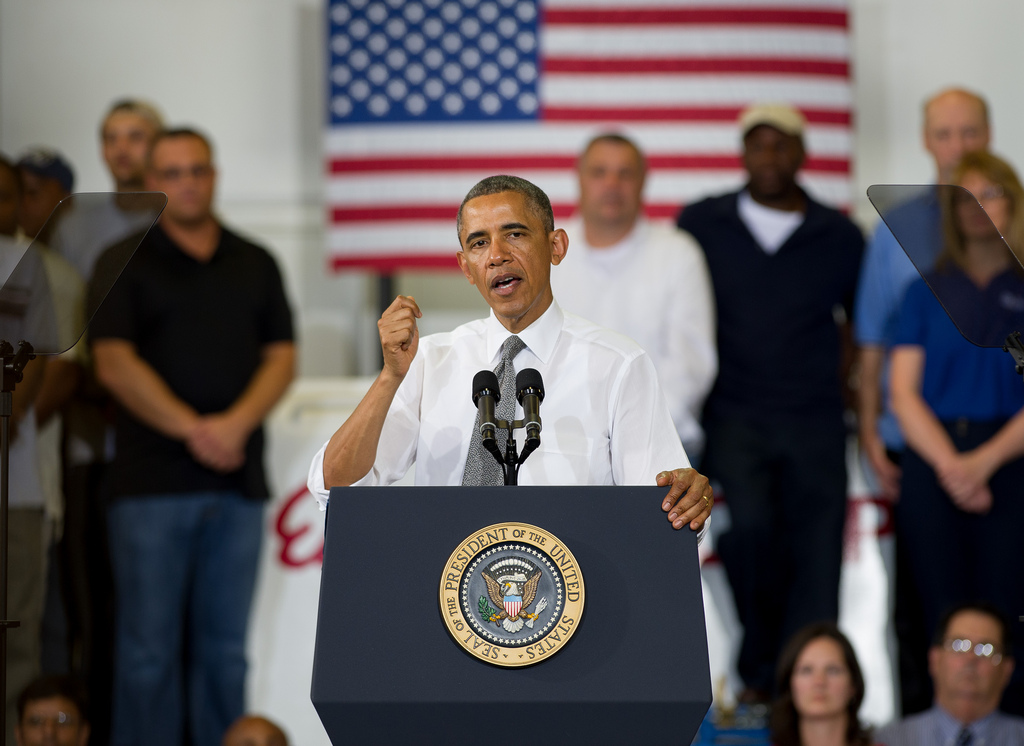Technology Groups, Members of Congress Laud and Criticize Obama’s Net Neutrality Statement
WASHINGTON, November 12, 2014 – President Obama sparked both praise and anger on Monday when he urged the Federal Communications Committee to classify broadband as a regulated utility under Title II of the Communications Act. With liberals pushing for Title II regulation and with conservatives decry
With liberals pushing for Title II regulation and with conservatives decrying more regulation, many observers had seen an alternative route proposed by Federal Communications Commissioner Chairman Tom Wheeler as a “light regulation” compromise. Wheeler’s proposal to utilize a separate section of the law – Section 706 of the Telecommunications Act of 1996 – while still ensuring net neutrality protections, such as baring companies from blocking and throttling web sites.
Many voices have reacted to Obama’s remarks, in which he said: “I believe the FCC should create a new set of rules protecting net neutrality and ensuring that neither the cable company nor the phone company will be able to act as a gatekeeper, restricting what you can do or see online.”
Democratic members of Congress including Rep. Mike Doyle, D-Penn., and Rep. Anna G. Eshoo, D-Calif., released mirroring statements supporting Obama’s remarks, and which included a version of the phrase, “I strongly encourage FCC Chairman Wheeler and the rest of the Commission to adopt the President’s proposal.”
Sen. Al Franken, D-Minn., who is among the most vocal advocates of net neutrality, had equally kind words to say about the president. “I welcome today’s news that President Obama is pressing the FCC to maintain a free and open internet.”
Industry groups were deeply concerned. The Telecommunications Industry Association and the Center for Boundless Innovation in Technology highlighted the politically contentious nature of the president’s action. As Republicans now control both houses of Congress, compromise would have fared better, they said. “A more pragmatic president would have used this opportunity to work with Republicans and the dozens of Congressional Democrats who’ve opposed Title II on a legislative deal – the way that Clinton and Gingrich resolved welfare reform and the key debates of their day,” said TechFreedom.
The move might spur an update of the Communications Act. Rep. Leonard Lance, R-N.J., a ranking member of the Energy and Commerce Committee’s Communications and Technology Subcommittee, has pushed for such legislation since January. His spokesperson told Broadband Breakfast, “Washington bureaucrats should not be regulating the Internet. That’s why Congressman Lance signed a letter today urging the FCC to reject any classification proposals. Only a bipartisan update of the Communications Act passed by Congress will help keep the internet open and free.”
Although FCC Chairman Tom Wheeler has stated that the two are in agreement about net neutrality rules, the president acknowledged that the “FCC is an independent agency, and ultimately this decision is theirs alone.” TechCrunch noted that Wheeler’s quick response to the president’s remarks highlighted hybrid approaches rather than Title II-only or Section 706-only plans.








